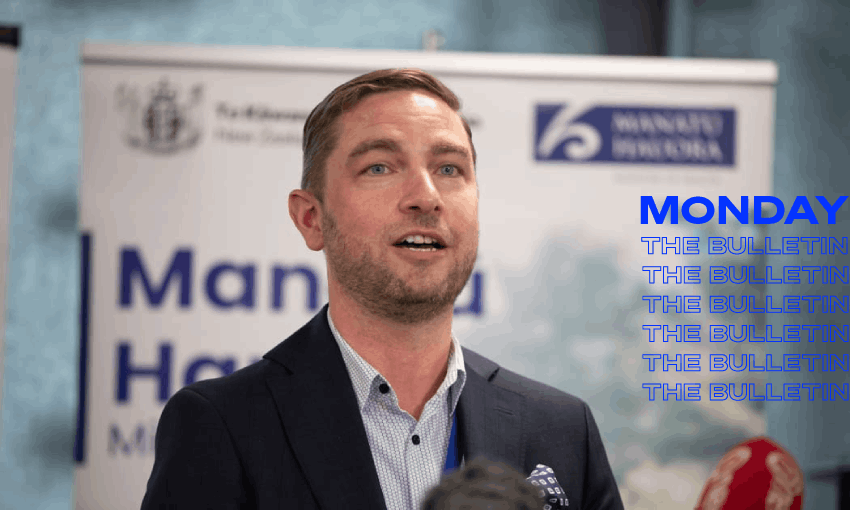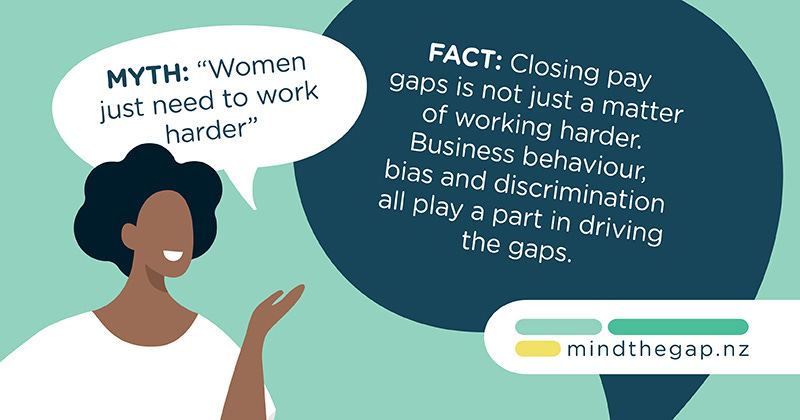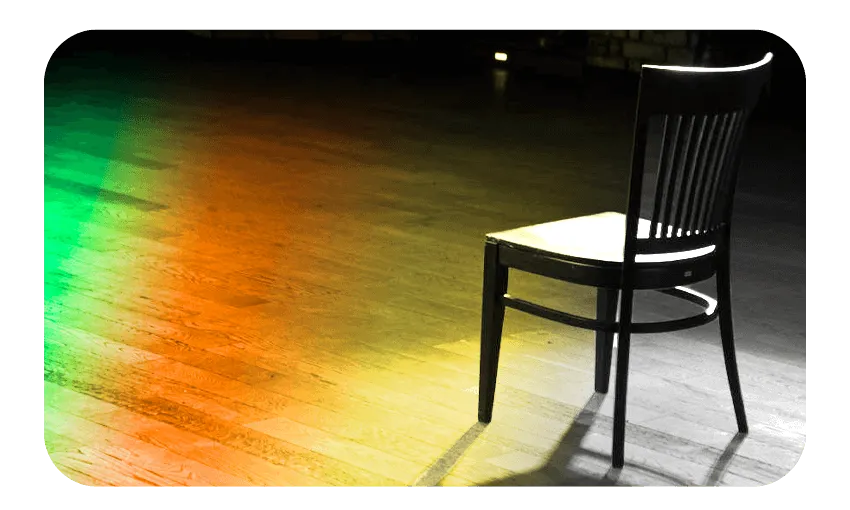Covid cases hit sixth-month low
After a winter wave that peaked at 11,500 reported cases and 836 people in hospital a day, experts suggest the wave is now easing
Mōrena and welcome to The Bulletin for Monday, August 15, by Anna Rawhiti-Connell. Presented in partnership with Z Energy.
In today’s edition: Luxon has background check done on himself; government gives councils power to run public transport; new documentary reveals the larger goals of those involved with this year’s parliamentary protest; but first, low Covid case numbers meaningful for establishing a likely plateau.
Andrew Old is the new deputy director-general of health, taking responsibility for our Covid response (Photo RNZ/Angus Dreaver)
Lowest case number since February
I vividly recall the day the omicron variant prompted a move to the red traffic light setting this year because it was also the day I slogged my way through the Auckland half-marathon. The press conference news came through on January 23 as I was on the harbour bridge. That wave peaked in March, declined to a seven-day rolling average of 4,616 in late June and then climbed again for the second wave which peaked at 11,548 in mid-July. Yesterday the country recorded 2,618 Covid cases, the lowest since late February. While weekend case numbers are often lower, the seven-day rolling average is also down from 5,441 last Sunday, to 4,302 cases.
Finding the plateau
Epidemiologist Michael Baker said the lowest daily total for nearly six months was “good news” as well as being very meaningful. “The thing we’re all looking for, is we know we’re coming out of this second wave of omicron – and we’re going to descend to a new plateau, just as we did after the first wave – but we don’t yet know what that plateau will be,” Baker said. Baker said it would be a few weeks before it was clear that this wave was over and that even though warmer months are coming, Covid-19 doesn't rely on cold conditions to spread.
Hospitalisations down 30% in three weeks
Hospitalisations, a metric that lags case numbers, have also been declining over the last three weeks, down from this wave’s high of 836 to 587. Last Sunday 675 were in hospital. There are now 1,750 deaths confirmed as attributable to Covid, either as the underlying cause of death or as a contributing factor. Hospitals have been hit hard by winter illnesses and staff absenteeism as a result of illness. The number of people who were off sick for more than a week almost doubled in the three months to the end of June, according to Stats NZ. This morning, Stuff’s Michelle Duff looks at whether that feeling that absolutely everyone has been sick this winter is backed up by the data.
“We're going to be managing Covid, one way or another, possibly forever”
Newsroom’s Marc Daalder spoke to the new deputy director-general of health, Andrew Old, who is heading up the new Public Health Agency. Old assumes responsibility for our Covid response in this role. He freely admits we've moved out of the emergency phase of the response and his job is now to bed in a strategy for managing the virus in the long term. “I think everyone recognises now that we're going to be managing Covid, one way or another, possibly forever,” he said. He would also like us to stop referring to him as the new Ashley Bloomfield. A fair request.
For every dollar a Pākehā man earns, Māori and Pasifika women earn $0.81 and $0.75 respectively. So where does the answer to closing this significant deficit lie? MindTheGap, a public pay gap registry, wants government-mandated pay gap reporting, but it also thinks businesses can be doing far more in terms of transparency. Read more about how the pay gap is stopping Māori and Pacific communities from thriving, on The Spinoff now (sponsored).
Christopher Luxon runs new background check on himself
Following last week’s revelations about Tauranga MP Sam Uffindell, the National Party’s new selection process for aspiring politicians has been extended to include current elected MPs. Luxon has been the first to be tested. The worst it showed up, according to Luxon? A $60 dollar fine for driving in a bus lane. Luxon also said the new processes had not prompted any disclosures from current MPs. Speaking to Q&A on Sunday, former National Party MP Chris Finlayson said that the party’s board had let Luxon down by not informing him of Uffindell’s past at the time of his selection for the Tauranga by-election.
Government giving councils power to run public transport
The government is announcing new rules today that will let local councils take over and run public transport services. As the Herald’s Thomas Coughlan reports, the government is scrapping the Public Transport Operating Model (PTOM). The PTOM has prevented councils from owning and operating their own public transport services if they wanted to access subsidies from Waka Kotahi’s National Land Transport Fund. As Coughlan points out your buses might carry council branding (AT in Auckland or MetLink in Wellington) but the services are contracted out to private companies to run. Transport minister Michael Wood said he hoped the change would help councils address the current bus driver shortage, saying the emphasis on cost-cutting had driven down driver pay and led to an exodus of drivers.
Why support The Spinoff? Here's what one of our members had to say…
"I got used to the articles and updates during the first lockdown. When the second lockdown kicked in one of the first things I did was check The Spinoff to find out what was happening. That made it clear to me that if I considered The Spinoff important enough to be my go-to source for news then it was time I paid for the privilege.” Aaron Officer, Waihōpai Invercargill
If like Aaron you value our work and have the means to do so, show your support by making a contribution today.
Hair Now
Hair Now is a new six-part documentary series on The Spinoff, directed by Michelle Ang. Six women from different cultural backgrounds across Aotearoa examine how their hair shapes their identity. In this first episode that debuted on Friday, Yasmine, a Palestinian Jordanian New Zealander navigates the complex cultural ideas about what hair should be covered and what hair should be seen.
Click and collect
After Leo Molloy’s exit from the Auckland mayoralty race on Friday, former mayor John Banks calls on Viv Beck to withdraw.
Ukrainian President Volodymyr Zelensky wants the leaders of countries like New Zealand to visit Ukraine and see what’s happening with their own eyes.
The Green Party launches a campaign to save the St James theatre in Auckland.
Christchurch City Council faces lawsuit over costs of air purifiers bought to cope with stench from the burnt-out wastewater treatment plant.
When you write to David Attenborough, he writes back.
Got some feedback about The Bulletin, or anything in the news? Get in touch with me at thebulletin@thespinoff.co.nz.
If you liked what you read today, share The Bulletin with friends, family and colleagues.
Robyn Hunt looks at the past and future of disability rights in New Zealand; Tim Adriaansen explains why a new transport-emissions policy could be a game-changer for Auckland; Danyl McLauchlan considers the Sam Uffindell saga; Charlotte Muru-Lanning reveals why everyone’s talking about seafood boil (and where to get it); and Leah McFall proclaims her loathing for guinea pigs, the world’s worst pets.
All Blacks coach Ian Foster’s fate to be decided this week
New Zealand Rugby (NZR) will meet to review the tour of South Africa once the team is home this week. At a media conference early yesterday evening, NZR CEO Mark Robinson confirmed NZR management will make recommendations to the NZR board, who will make the final decision about Foster’s future. Speaking after the All Black’s victory over the Springboks on Sunday morning, coach Ian Foster said he had no idea if he will keep his job. Foster quipped that the stress had been good for him saying “I think I lost one kg over the last week so a couple more weeks I'll be in good shape". The coach also described the scrutiny and criticism as “pretty vicious”.
In lighter rugby news, an NPC game was halted in Southland yesterday because of a burnt cheese roll.
Fire and Fury
For a feature today, I want to recommend a new documentary from Stuff Circuit. Fire and Fury threads the needle on the people involved in this year’s occupation of parliament, a protest that was ostensibly about mandates, and reveals that those behind it have bigger and more dangerous goals. I watched it last night. It’s pretty confronting but is a necessary look at how disinformation works. There are supporting feature pieces for the documentary including this one which connects anti-vaccination, anti-mandate group Voices For Freedom and its broader goal of making New Zealand “ungovernable”, to this year’s local government elections.










